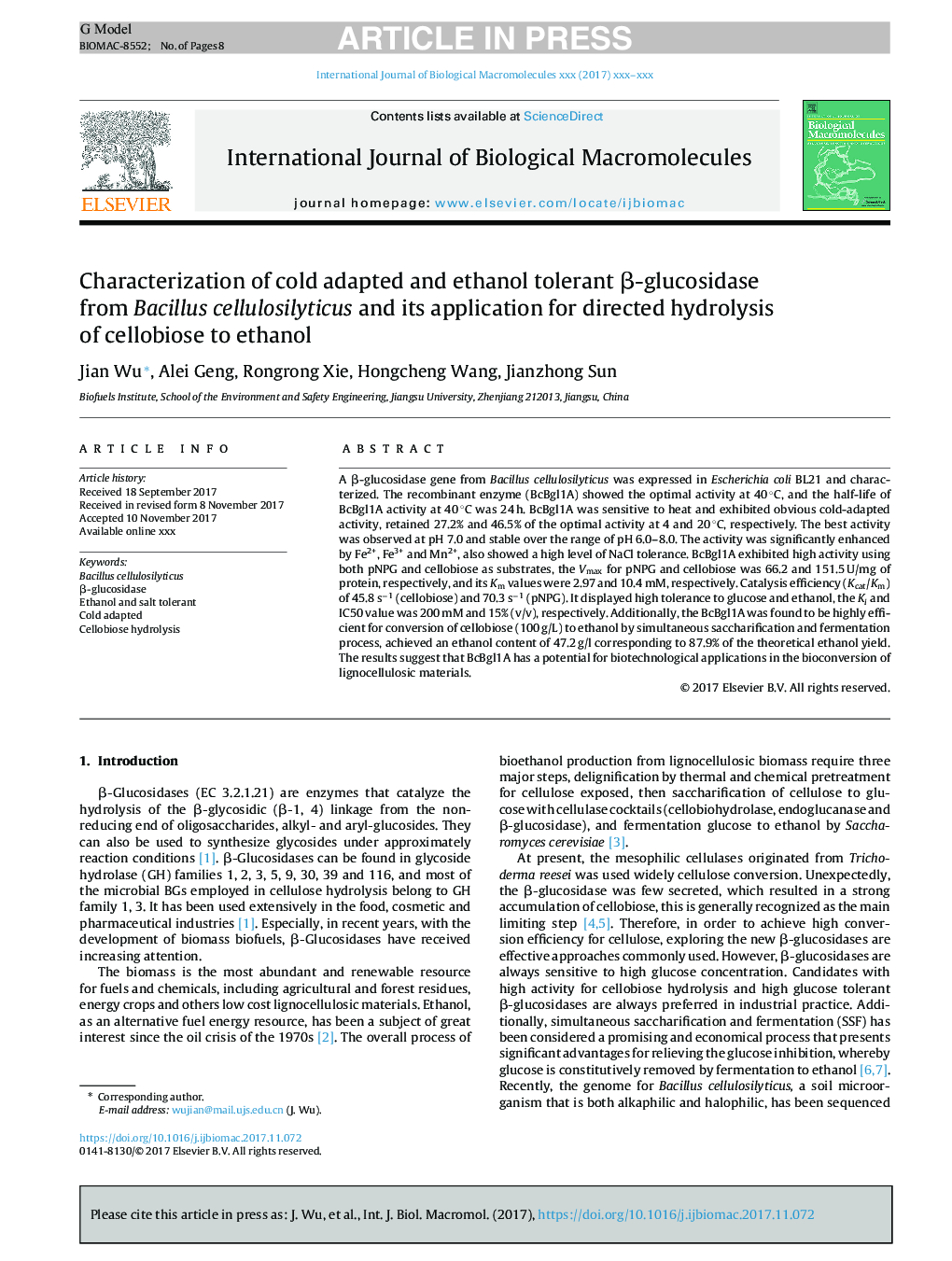| Article ID | Journal | Published Year | Pages | File Type |
|---|---|---|---|---|
| 8328539 | International Journal of Biological Macromolecules | 2018 | 8 Pages |
Abstract
A β-glucosidase gene from Bacillus cellulosilyticus was expressed in Escherichia coli BL21 and characterized. The recombinant enzyme (BcBgl1A) showed the optimal activity at 40 °C, and the half-life of BcBgl1A activity at 40 °C was 24 h. BcBgl1A was sensitive to heat and exhibited obvious cold-adapted activity, retained 27.2% and 46.5% of the optimal activity at 4 and 20 °C, respectively. The best activity was observed at pH 7.0 and stable over the range of pH 6.0-8.0. The activity was significantly enhanced by Fe2+, Fe3+ and Mn2+, also showed a high level of NaCl tolerance. BcBgl1A exhibited high activity using both pNPG and cellobiose as substrates, the Vmax for pNPG and cellobiose was 66.2 and 151.5 U/mg of protein, respectively, and its Km values were 2.97 and 10.4 mM, respectively. Catalysis efficiency (Kcat/Km) of 45.8 sâ1 (cellobiose) and 70.3 sâ1 (pNPG). It displayed high tolerance to glucose and ethanol, the Ki and IC50 value was 200 mM and 15% (v/v), respectively. Additionally, the BcBgl1A was found to be highly efficient for conversion of cellobiose (100 g/L) to ethanol by simultaneous saccharification and fermentation process, achieved an ethanol content of 47.2 g/l corresponding to 87.9% of the theoretical ethanol yield. The results suggest that BcBgl1A has a potential for biotechnological applications in the bioconversion of lignocellulosic materials.
Related Topics
Life Sciences
Biochemistry, Genetics and Molecular Biology
Biochemistry
Authors
Jian Wu, Alei Geng, Rongrong Xie, Hongcheng Wang, Jianzhong Sun,
